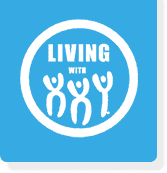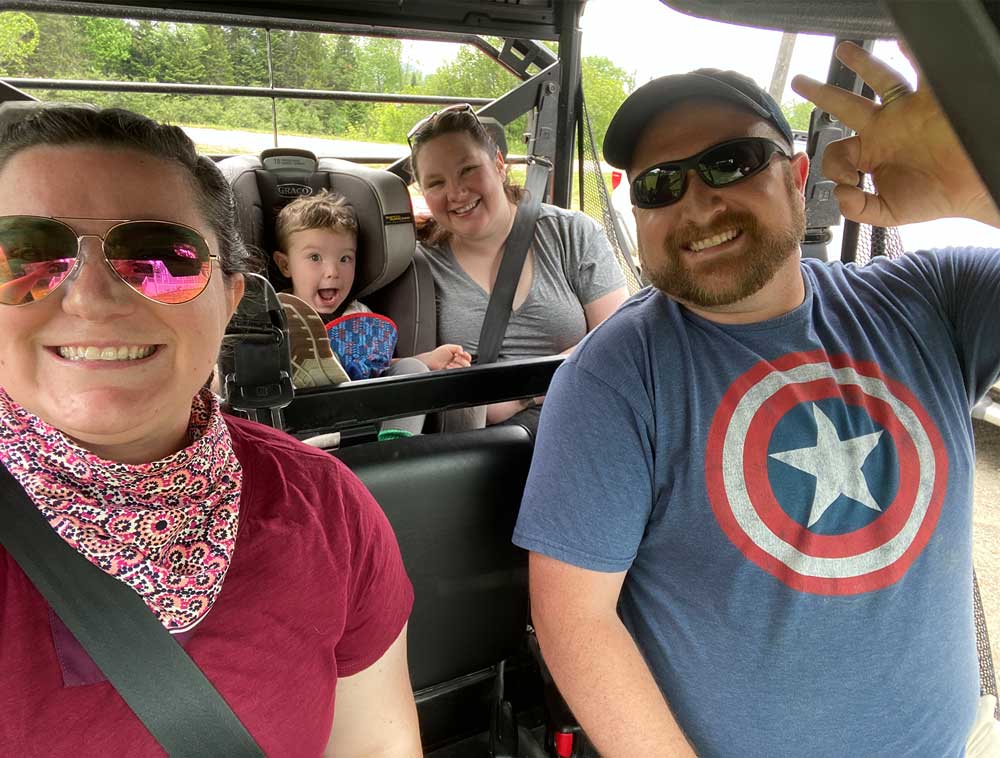By Chelsea Castonguay
In my time working with Living With XXY, there’s been a change in our family. Before we met Ryan and joined the community, we were extremely private about our son Noah’s diagnosis of Klinefelter Syndrome (KS), or 47 XXY. There were a few contributing factors to this, including a well-known researcher telling us not to mention it to him until his teens, and a family member having a less than ideal response to the news. As new parents, we felt it was our responsibility to shield Noah from the reactions the diagnosis could elicit from others. I still feel this way. However, we were more prepared for the negative responses than for some of the other reactions, the worst of which were condolences, pity, or gossip. I think for many of us, it’s tricky to figure out how to be supportive, to express our desire to be there, and so many of us want to find a solution. As someone who wants to fix problems and doesn’t want people I love to be hurting or in pain, this is something I personally struggle with. I find myself wondering what’s the right thing to say (and certainly messing it up sometimes), and what would’ve been helpful to us when we told people about it.
Here’s what I know to be true: there is no need to respond with things like, “I’m sooo incredibly sorry, this is the worst,” or “Oh my god, how awful,” or “I Googled it, and he’s probably going to be pretty normal,” or “I’m telling my daughter all about Noah’s condition; what’s called again?” A personal favorite is, “He doesn’t look like there’s anything wrong with him!” I always find these responses so incredibly jarring because there isn’t anything wrong with him. My son is beautiful, healthy, funny, smart, and wonderful. When I look at him, I see everything he is, and nothing that he isn’t. I don’t see an extra X chromosome, or a diagnosis, because to me it’s all part of what makes him the spectacular human being he is, and will be.
While probably well intentioned, none of the above responses are particularly helpful. Before you get upset or defensive (because we’ve all said things like this) I’m going to tell you why it’s not great. There are few things in the world as terrifying as learning there is something “wrong” with your child, no matter how old they are. Those of you who’ve been with the community for a while now know we don’t think people with Klinefelter Syndrome have anything “wrong” with them, but when you first learn about it, it’s upsetting. We all experience receiving the news in different ways, whether it’s as parents getting the diagnosis in utero, or at some point in our child’s life, or for men who learn this critical information about themselves at some point.
As the mother of a child diagnosed in utero with KS, there was a lot of emotion wrapped up in hearing that news. I was terrified, anxious, and afraid. I thought I’d done something wrong to cause it, and I was fearful of what the future would bring. I worried people would judge him, or treat him differently, and the idea of that happening made my heart ache in an indescribable way. There was a significant lack of clear information to go on, so I felt incredibly alone and unsupported. When I did gather up the courage to tell someone and was met with the above responses, I crumbled inward. Not only did I have to correct them, I also had to educate them on something I didn’t fully understand yet myself. As a mother-to-be who was experiencing a medically difficult pregnancy, and then as a new mother, it was daunting.
So here is my advice to you, the receiver of information about a Klinefelter Syndrome (or really any diagnosis) diagnosis: if we’re telling you something as personal as a medical diagnosis, it means we trust you. We trust you so much that we’re bringing you into the folds of our life, and we trust you’ll continue to love our kid exactly the way they are, extra chromosomes and all. We don’t need you to be sorry, because we aren’t. We love our kids as fiercely, wholly, and unconditionally as we would if they didn’t have an extra X. We want to know you’ll love them the same way, too.
I know it’s really hard to know what to say, especially when the information is unexpected. You might be going through your own feelings of surprise, grief, or worry. That’s really normal, but I’m begging you to try to put that immediate response aside, and deal with it later. When you’re being told this information, I want to ask you to be present, and in the moment with the person telling you. Don’t run to Google, don’t say whatever pops into your head, but instead take a breath, and be there for them. Here are some responses I wish I’d heard to sharing Noah’s diagnosis (and some I did hear):
“Thank you for telling me. I’m here for you, and Noah.”
“It sounds like you’re going to need support. How can I support you?”
“Thanks for sharing this information with me. When you’re ready, I’d like to know more. Would you like to tell me, or is there a good website you’d recommend for information?”
Keep it simple, be supportive, don’t run to Google, and let us explain it to you. Remember that no matter what you’ve thought or are worried about, we’ve already thought it and worried about it. We don’t need condolences or pity; we need your support to continue to make our community the vibrant place it is.



